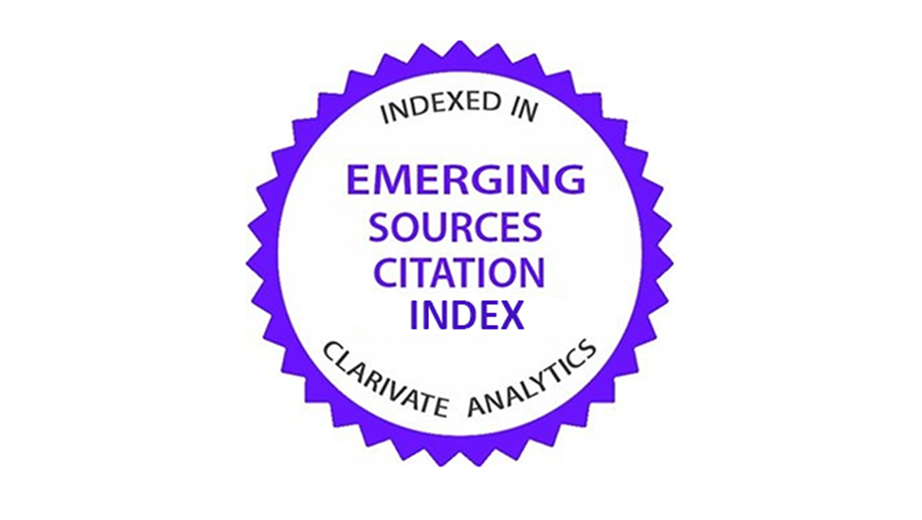STRATEGI PENGEMBANGAN USAHA EKONOMI PRODUKTIF BERBASIS POTENSI LOKAL PADA MASYARAKAT RAWAN KEMISKINAN DI SEKITAR WADUK KEDUNG OMBO
Sugihardjo Sugihardjo, Eny Lestari, Dwiningtyas Padmaningrum, Agung Wibowo
Abstract
Community empowerment is a process to facilitate and encourage the community to be able to put themselves in proportion and become the main actors in the use of strategic environment to achieve a long-term sustainability. The development of productive economic activities is a rational option for strengthening the local economy and local development potential in communities around the forest. The purpose of this study were 1) know the mapping of local commodities that have the potential to be empowered, 2) know the introduction of appropriate technologies that meet the characteristics of the local potential, 3) drafting of strategies for developing productive economic activities in vulnerable poverty communities around the forest, the basic method used in this research is descriptive qualitative research. The research was conducted in communities around the Dam of Kedungombo in Ngargotirto Village, Sub district of Sumberlawang, District of Sragen. The approach used in this study is the PRA (Participatory Rural Appraisal). The analysis used is a social institution analysis, stakeholder analysis and SWOT analysis. The results of the study concluded that Ngargotirto Village the postscript is a community around the forest take a relatively longer in the development of productive economic activities compared with the rice fields, or near urban communities. Viewed from the socio cultural perspective is not ready to receive industrialization in their lives and still occur clash between the culture industry and an agrarian culture. In an effort to stimulate and develop the productive economic activities, it needs a strategy that can build the foundation for productive economic activities, namely: 1) strategic forum for dialogue facilitation to synergize stakeholder, 2) institutional strengthening productive economic activities, 3) improve the capability sources human resources, 4) apply the appropriate technology. For that, the starting point in the development of productive economic activities in local communities is to synergize the clash of cultures.
Keywords
empowerment; poverty; productive business; economic
References
Rudito, B., dan Famiola, M. 2008. Metode Pemetaan Sosial: Teknik Memahami Suatu Masyarakat atau Komuniti. Bandung: Rekayasa Sains.
Bungin, B. 2008. Penelitian Kualitatif: Komunikasi, Ekonomi, Kebijakan Publik, dan Ilmu Sosial Lainnya. Jakarta: Prenada Media Group.
Chambers, R. 1996. PRA: memahami Desa Secara Partisipatif. Kanisius. Yogyakarta.
Hafsah, M.J. 2003. Kemitraan Usaha: Konsepsi dan Strategi. Pustaka Sinar harapan. Jakarta.
Pejuang, S. 2008. Aplikasi Teori Analisis SWOT dan Organisasi. http://faizperjuangan.wordpress.com/2008/. Diakses 4 Februari 2010.
Pranaka dan Moeljarto, V. 1996. Pemberdayaan. Dalam Onny, S., Prijono dan A.M.W. Pranarka. (Penyunting). Pemberdayaan Konsep, Kebijakan dan Implementasi. CSIS. Jakarta.
Subejo dan Supriyanto. 2004. Metodologi Pendekatan Pemberdayaan Masyarakat, Short paper pada Kuliah Intensif Pemberdayaan Masyarakat Pedesaan, Study on Rural Empowerment (SORem)—Dewan Mahasiswa Fak. Pertanian UGM tanggal 16 Mei 2004.
Sumandjan, S. 1984. Kemiskinan Struktural, Suatu Bangsa rampai. PT Sangkala Pulsar. Jakarta.
World Bank. 2001. Attacking Poverty With A Three-Pronged Strategy. World Bank Policy and Research Bulletin Vol. 11 No.4/Vol.2 No.1 Oktober-Desember 2000/Januari-Maret 2001.











